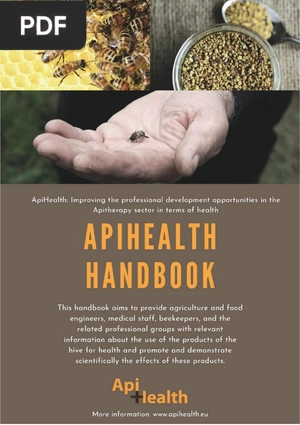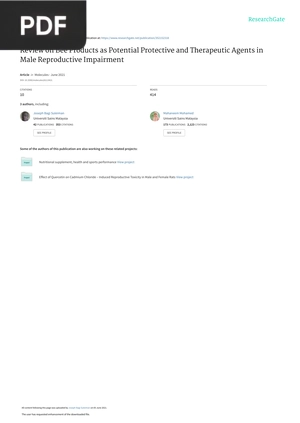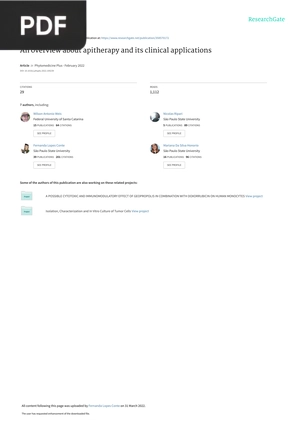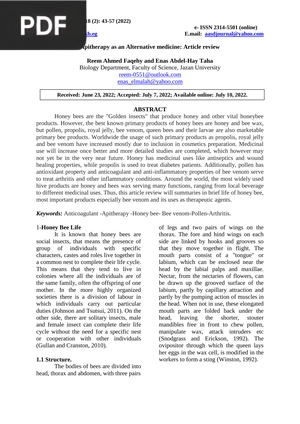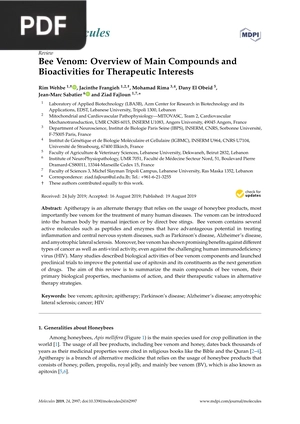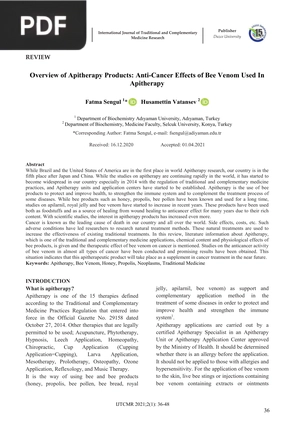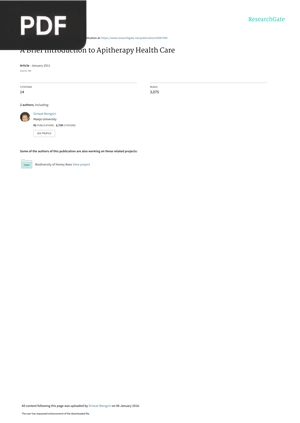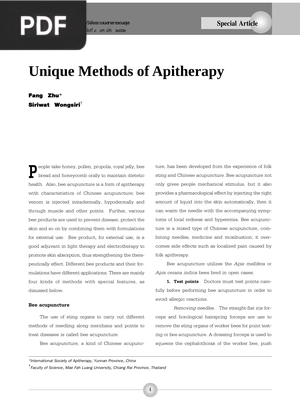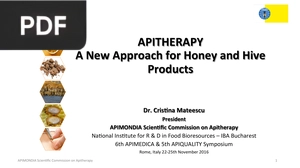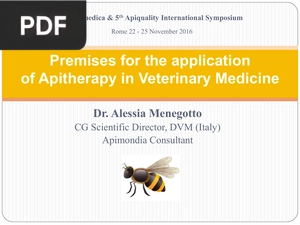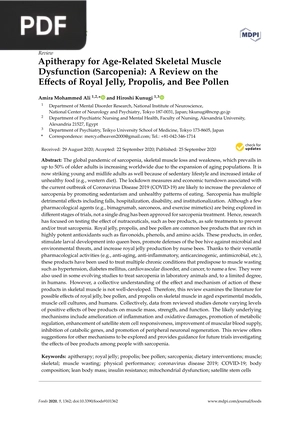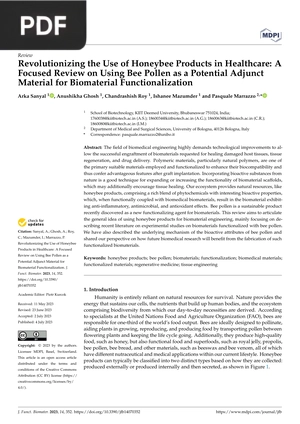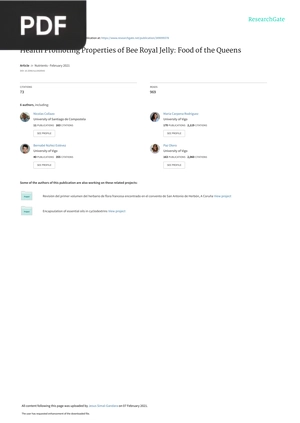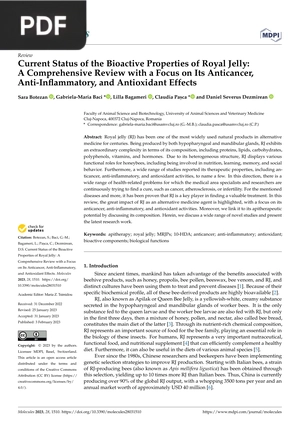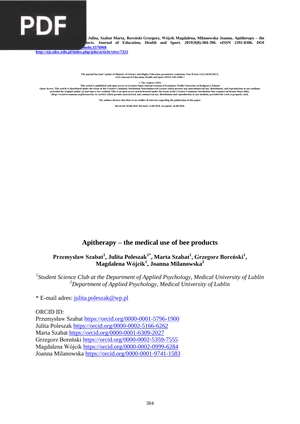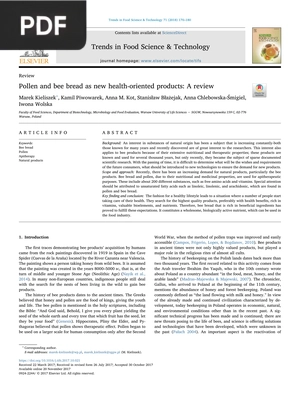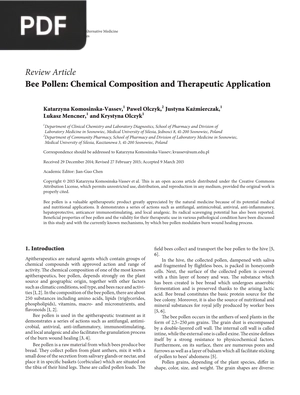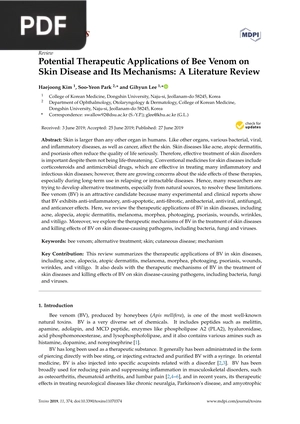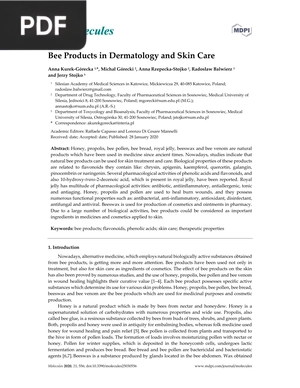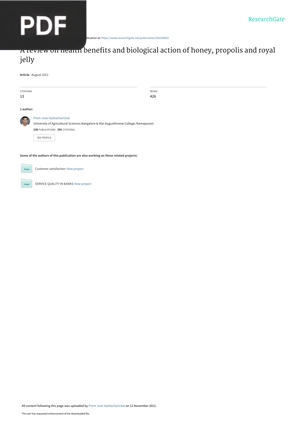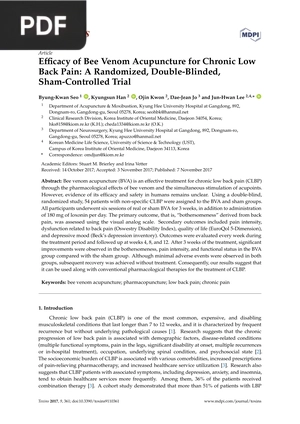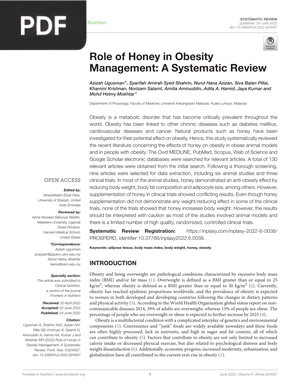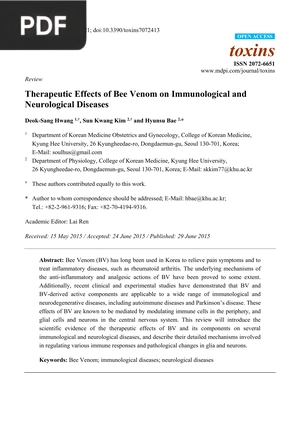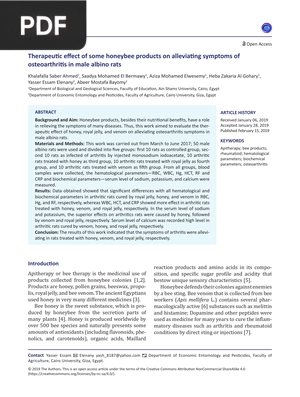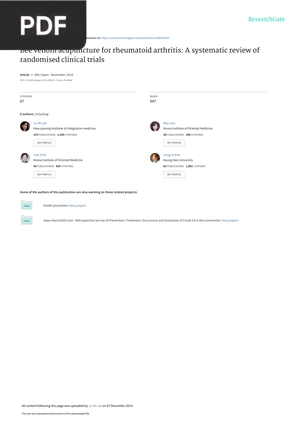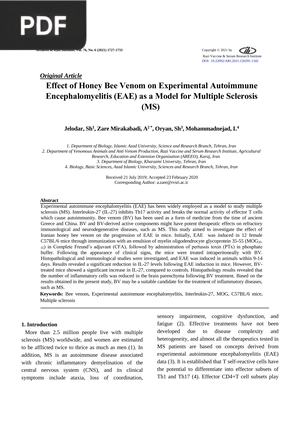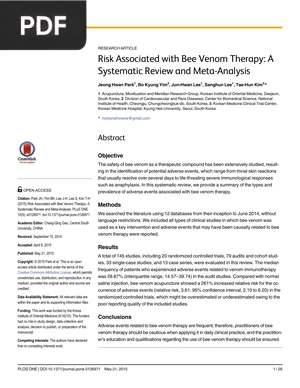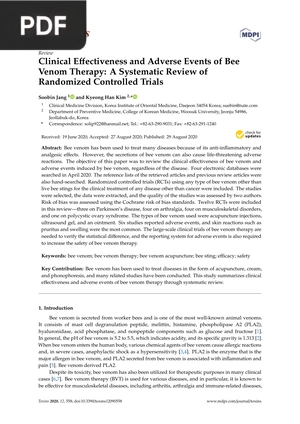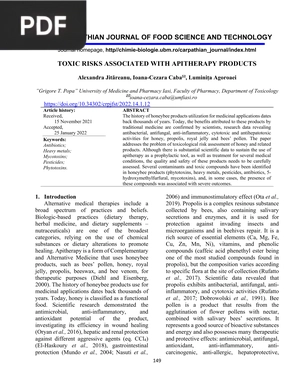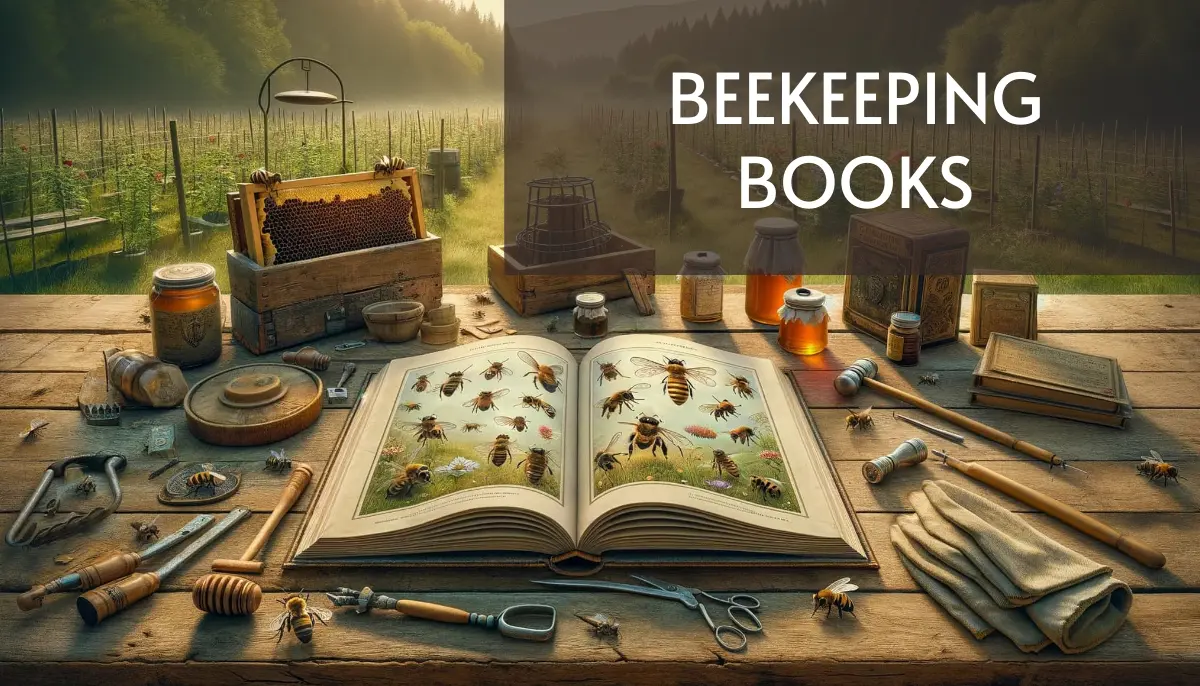5+ Apitherapy Books for Free! [PDF]
by InfoBooks
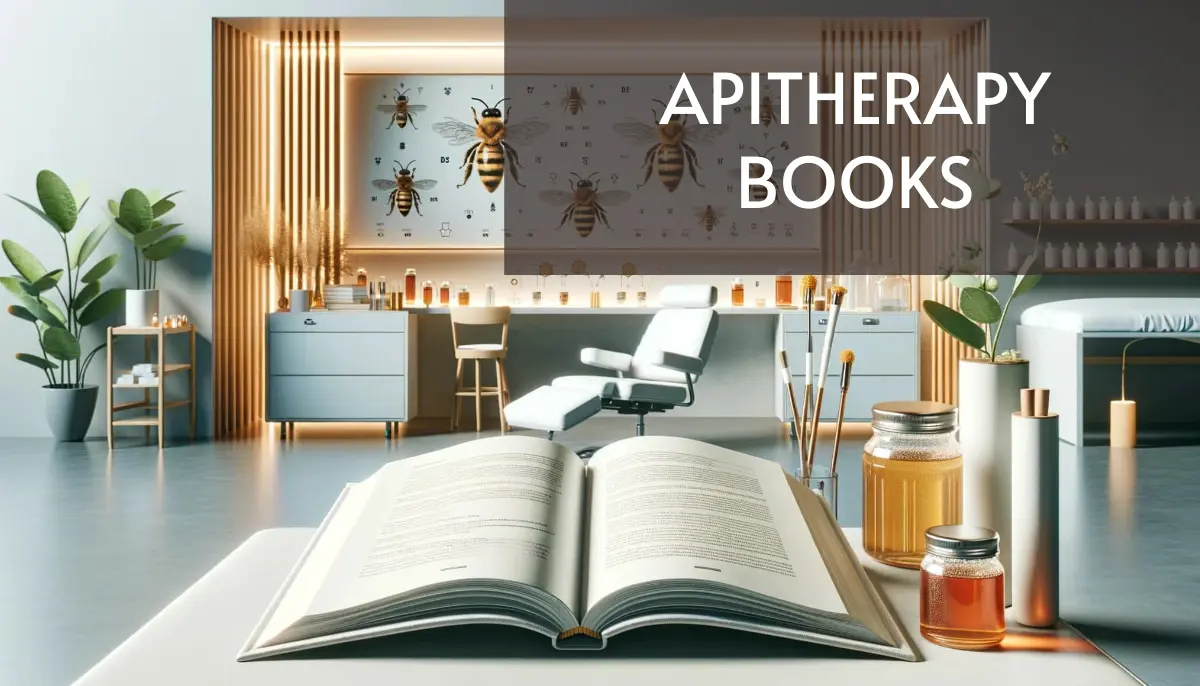
The boom of natural therapies does not seem to stop and everyday traditions and customs that date back to ancient times are reborn.
On this occasion, we present you our collection of free apitherapy books, so that you have one more option to study natural medicine.
Products and items derived from the activities of bees are quite popular in many parts of the world. Bee honey, for example, is appreciated as a nutritious and delicious food.
Apitherapy is a natural therapy where people make use of various elements and products derived from the activities of bees, especially the venom they expel when they sting people. This poison is called apitoxin and is stored in the sting of the bee.
Find out much more about this type of alternative therapy by taking a look at our more than 20 materials including apitherapy books and articles in PDF format, free to access and download to your electronic devices.
Apitherapy Books
Articles on Bee Products Used in Apitherapy
Within apitherapy, various bee products are used, the most common being royal jelly, pollen, propolis, and bee venom.
Royal jelly is attributed to antioxidant, anti-inflammatory, and regenerative properties. Pollen contains a large number of nutrients that strengthen the immune system. Propolis has recognized antiseptic, healing, and soothing virtues thanks to its phenolic properties.
On the other hand, bee venom is used in apitherapy to treat various health problems such as rheumatoid arthritis, neuralgia, and herpes. Learn more with the following free articlesabout bee products used in apitherapy.
Articles on the Benefits and Applications of Apitherapy
Among the main benefits of apitherapy are its anti-inflammatory, analgesic, and healing effects. Bee products are rich sources of nutrients and bioactive compounds that strengthen the immune system.
They are commonly prescribed in the form of ointments, salves, capsules, or injections to treat joint problems, ulcers, burns, and skin infections or relieve the symptoms of arthritis and osteoarthritis.
Apitherapy is also used in the complementary treatment of other ailments such as asthma, hypertension, diabetes, or stress. Enjoy more information with the following free articles on the benefits and applications of apitherapy.
Articles on Safety Considerations and Contraindications of Apitherapy
Like other alternative therapies, apitherapy may involve certain safety considerations if not applied correctly. For this reason, it is always advisable to receive this type of treatment by specialized professionals.
Some people may have allergies or adverse reactions to certain bee products such as royal jelly, pollen, or venom.
Before starting an apitherapy treatment, it is important to perform skin tests to rule out any type of hypersensitivity. Enjoy the following free articles on safety considerations and contraindications of apitherapy.
Beekeeping Books
Beekeeping and apitherapy are two closely related disciplines. Beekeeping is responsible for the cultivation of bees and for obtaining the valuable products of the hive in a sustainable and environmentally friendly way.
Thanks to beekeeping, it is possible to obtain the basic ingredients necessary for apitherapy treatments.
Both disciplines feed off each other and are essential for the conservation of honey bees, an indispensable insect in natural ecosystems and agriculture. If this is a subject of your interest, we invite you to visit our complete section of free beekeeping books.
Here ends our selection of free Apitherapy books in PDF format. We hope you liked it and already have your next book!
If you found this list useful, do not forget to share it on your social networks. Remember that "Sharing is Caring".
Do you want more Alternative Therapy books in PDF format?

